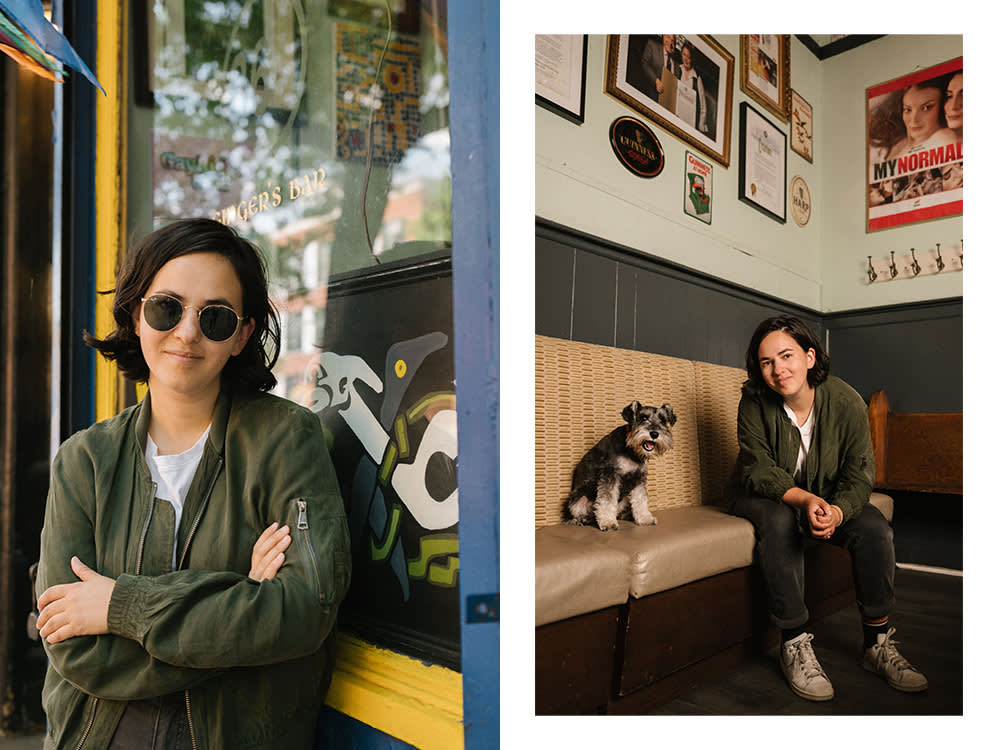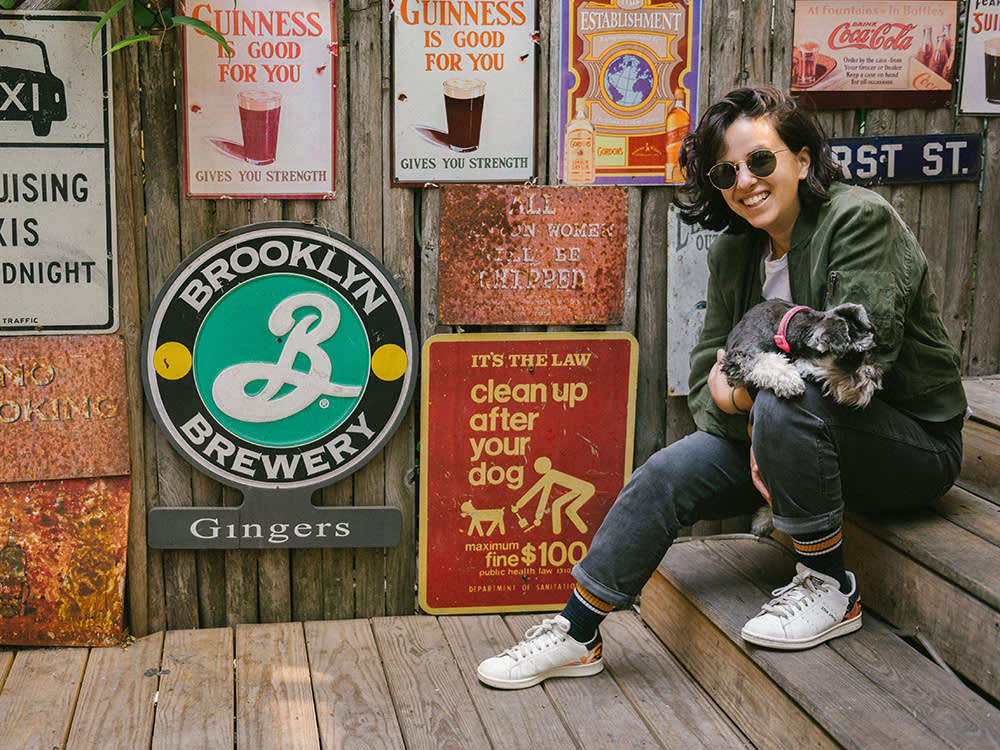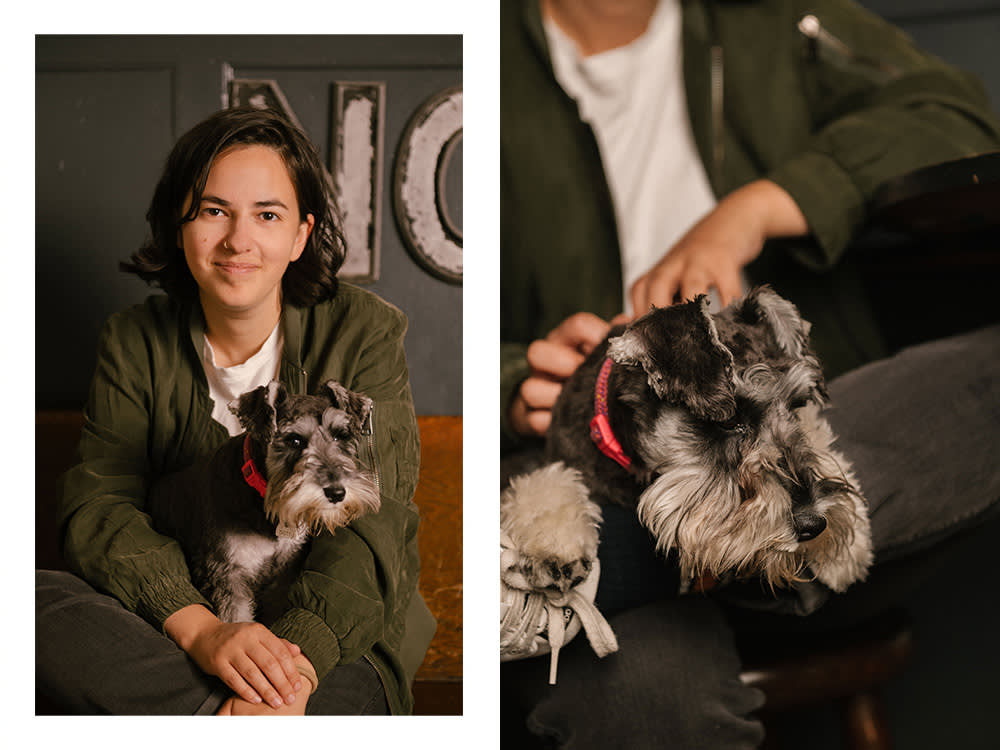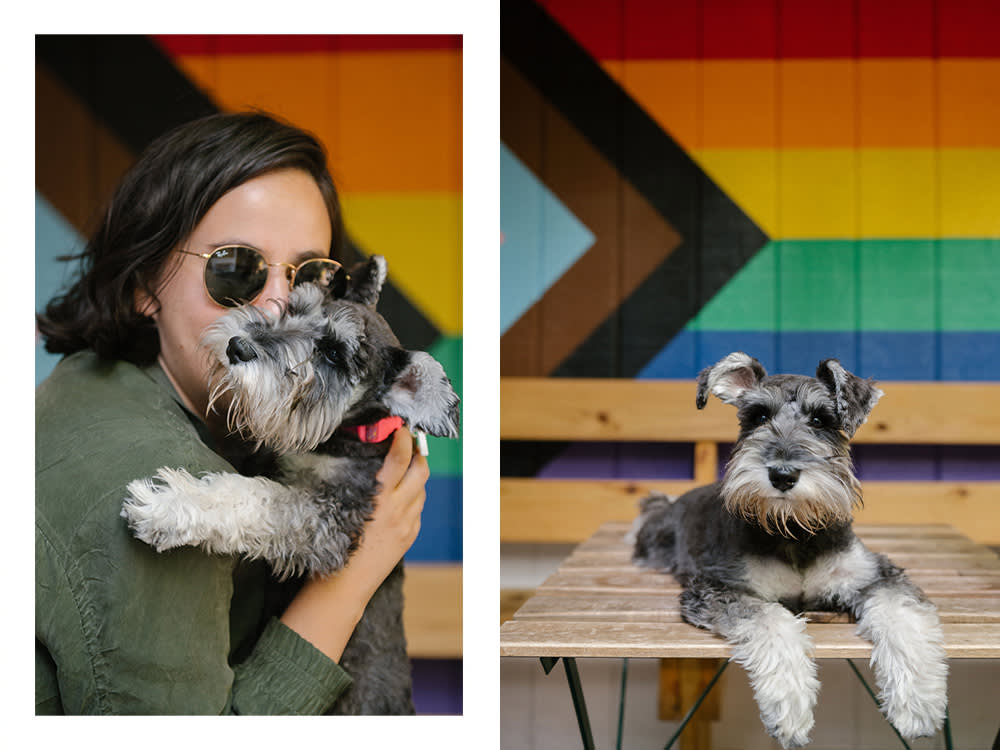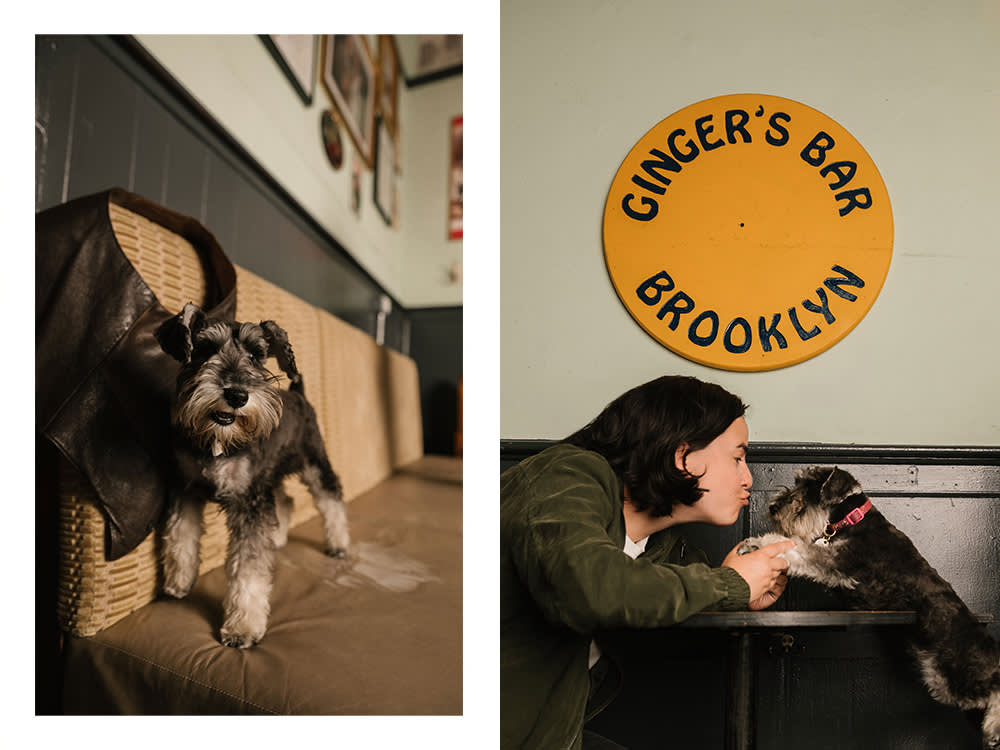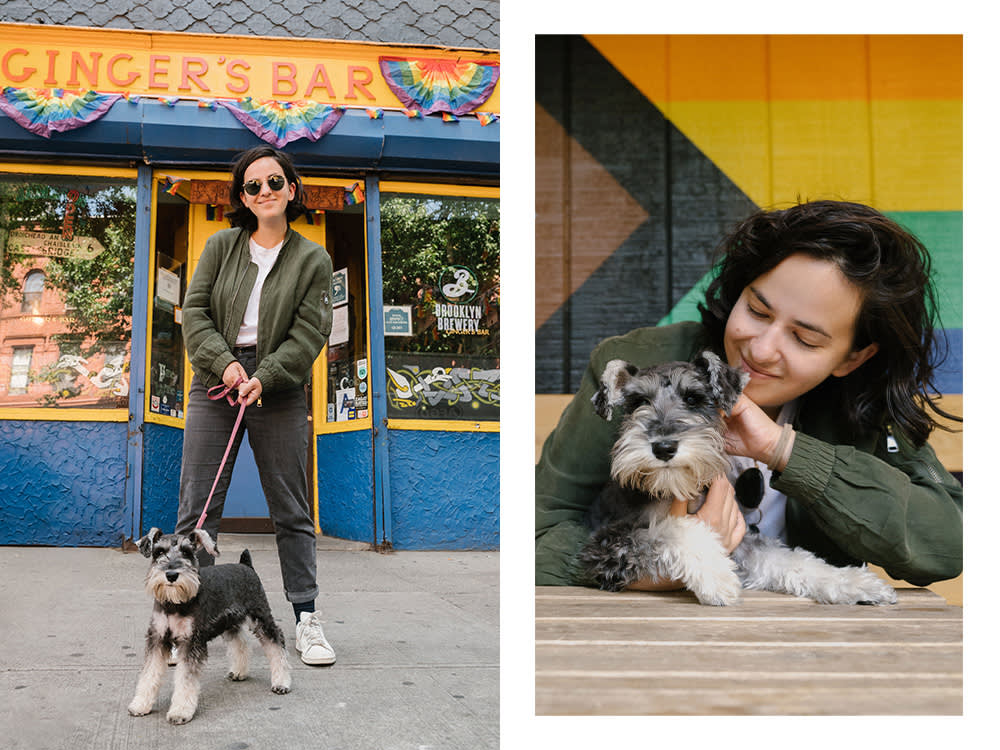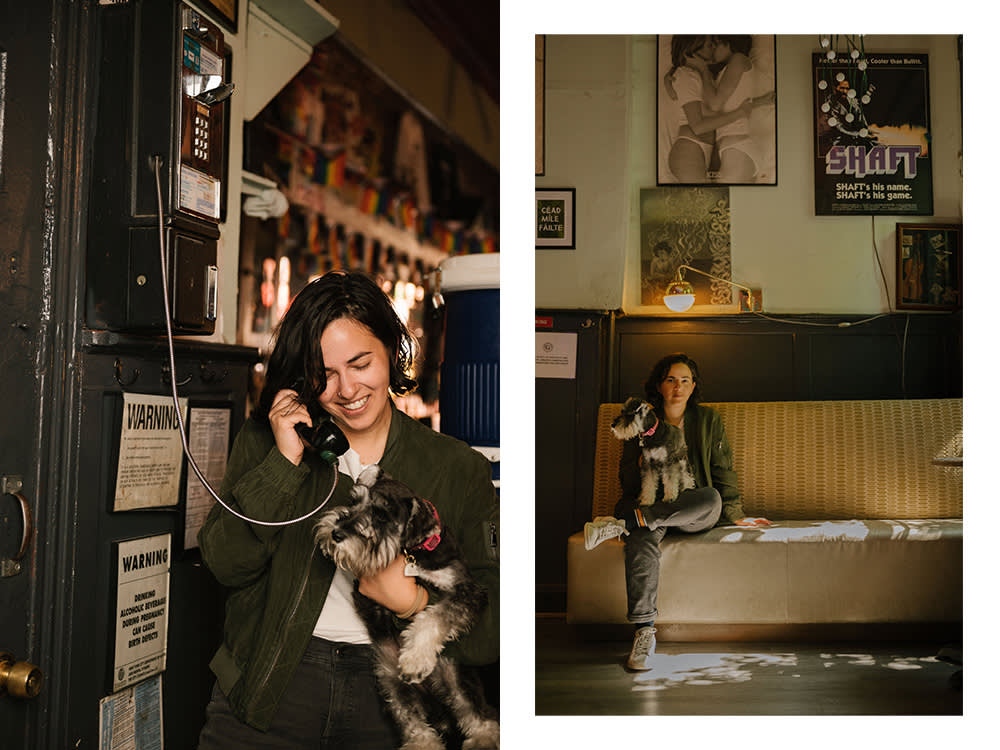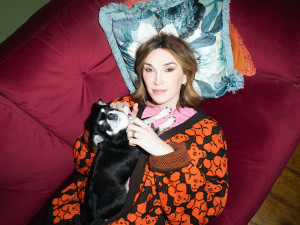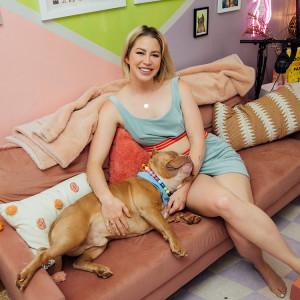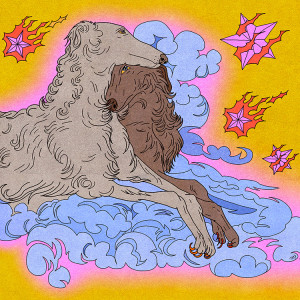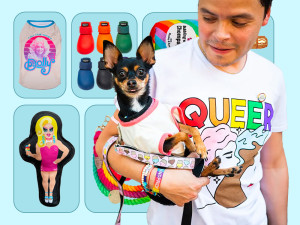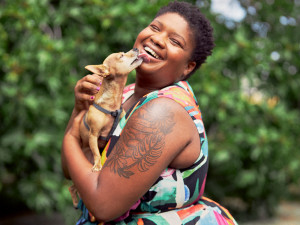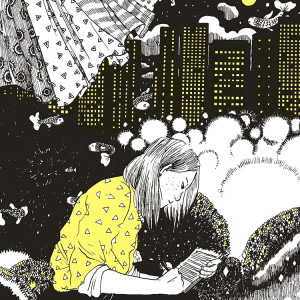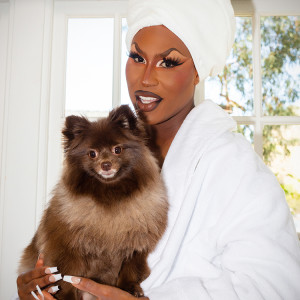Erica Rose and Her Dog Patty Mayonnaise Have the “Chutzpah” to Save Lesbian Bars
The co-creator of the Lesbian Bar Project shares her hopes for the future of queer filmmaking and her dog’s star status.
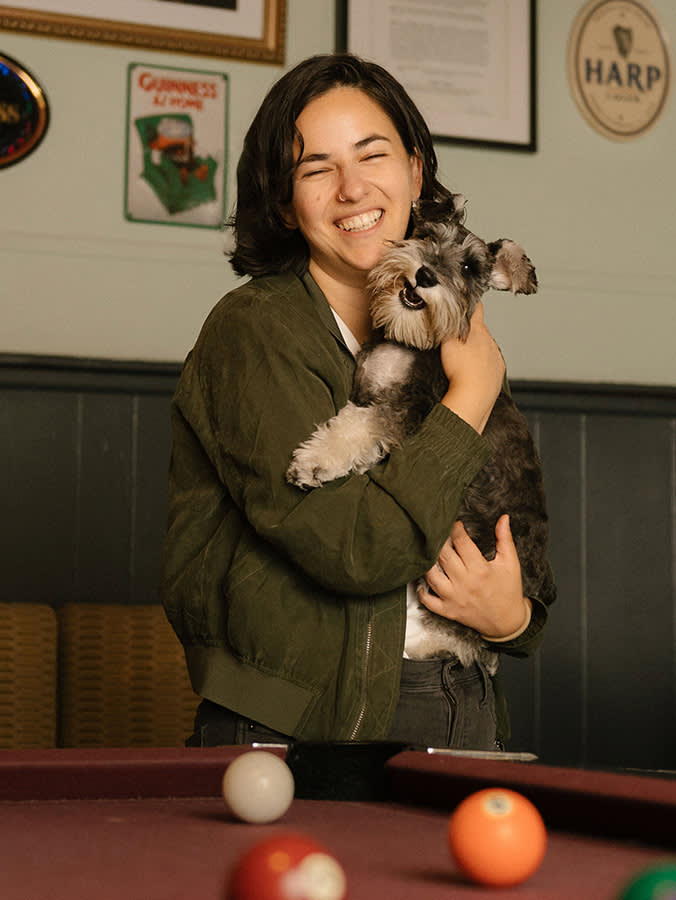
Share Article
In October of 2020, lesbian bars in the United States were at risk of going extinct. Of course, the COVID-19 pandemic was rough on all bars — gay or straight. But lesbian bars were already more vulnerable to begin with: In 1980, there were over 200. By the time the pandemic rolled around, there were only 16 left in the entire country.
Erica Rose knew these spaces needed something if they were going to make it to the other side of the pandemic. So, together with fellow queer filmmaker Elina Street, Rose launched The Lesbian Bar Projectopens in new tab, a PSA and fundraising campaign for the remaining lesbian bars in the U.S. Hosted by Orange Is The New Black’s Lea DeLaria, The Lesbian Bar Project quickly took on a life of its ownopens in new tab. The initiative raised over $150,000 to keep the bars afloat during the pandemic, inspiring Rose and Street to partner with alcohol company Jägermeister to film a full-length documentary for the cause. Soon after, Roku signed on to produce a three-part docuseries, highlighting select bars in the country. As a result of Rose’s work, 11 more lesbian bars have successfully opened in the U.S. since the inception of the project.
Rose isn’t close to finished with LBP, but, like many creatives, she juggles several passion projects at once, including being mom to her pup, Miniature Schnauzer Patty Mayonnaise (oh, and also a short film which premiered at the Tribeca Film Festival opens in new tab this month, nbd).
Recently, Kinship met up with Rose (and Patty, obviously) at one of our favorite lesbian bars, Gingers, in the Park Slope neighborhood of Brooklyn, to discuss Madame Mayo, the future of queer filmmaking, and what Pride means to the woman who is trying to save the spaces where it all started.

How has it been being a new dog parent to Miniature Schnauzer Patty Mayonnaise?
Patty is the best, and life is just way more fun with her. Patty has two moms — my girlfriend Leah and I have been dog obsessed our entire lives and waited a long time to get Madame Mayo. I grew up with Standard Poodles, and Leah grew up with Mini Schnauzers. Leah didn’t have to persuade me much to go Schnauzer — any pup with a cute little beard steals my heart. Patty is only five months old, but she’s hella smart, a social butterfly (like this mom of hers), and filled with all the chutzpah. She’s well known in our neighborhood and has a million friends. We always say, “It’s Patty’s world, and we just live in it.”
Your work with the Lesbian Bar Project aims to highlight and preserve the few lesbian bars left in the country. What inspired you to take on this project?
In March of 2020, the pandemic hit NYC, and my entire industry shut down (as did so many). This coincided with learning from an NBC Out articleopens in new tab that there were only 16 lesbian bars in the United States, and the pandemic could bring that number down to zero. I called my dear friend and fellow queer filmmaker Elina Street and we decided we could not live in a world where these vital safe spaces ceased to exist. We came of age in the bars; they are vital, safe spaces and integral to community development, political action, intergenerational dialogue, and queer friendship. We conceptualized The Lesbian Bar Project documentary and impact campaign initiative.
In the 1980s, there were roughly 200 lesbian bars in the U.S. Today, there are fewer than 30 left. In October 2020, we released a PSA and fundraising campaign, which helped raise over $117K for the remaining bars. In June 2021, we released a short documentary film and another fundraising campaign. The documentary short spotlights the bar owners, community activists, and patrons in three cities (New York City; Mobile, Alabama; and Washington, D.C.) and their struggles during the pandemic, their hopes for the future, and the impact on their communities. The 2021 fundraising campaign raised over $150k for the bars.
Tell me more about the film The Lesbian Bar Project.
The 2021 film has won two Webby awards, an ANA award, and was presented at The Library of Congress for the U.S. Congress Equity Caucus. The film was nominated for the Tribeca X Award and was acquired by AMC + / Sundance TV for streaming. In 2022, we created, executive produced, and directed episodes for the Roku docuseries adaptation of the short film, The Lesbian Bar Project. The 2022 Roku series was recently honored as one of the best brand-sponsored series at Brand Storytelling, a sanctioned event at The Sundance Film Festival. The series received a GLAAD Media Award and is nominated for best docuseries at the 2023 Queertiesopens in new tab. The PSA, short film, and series is executive produced by Lea DeLaria and The Katz Company and supported by Jägermeister’s #savethenight opens in new tab initiative.
Your work with LBP is obviously deeply personal, which must make it as exhausting as it is rewarding. How has getting Patty helped you cope with the stressors of this type of work?
It is personal and highly emotional. I’m very dedicated and push myself to ensure a project’s prosperity. The success of LBP was so important to me because the stakes were incredibly high — I mean, we had to do anything we could to save our bars! Now that the immediate dangers of the pandemic are behind us, the question becomes more so about ensuring we can still tell these important stories.
LGBTQ+ narratives and safe spaces are more important than ever before as we see the evil forces in our country try to erase us. Patty has been monumental in helping me obtain a bit more work-life balance (whatever that means!). Sometimes, I work from home, so having Patty forces me to take cuddle breaks and go outside. She’s also the most amusing little thing — her cute noises, her theatrics, her joy just makes me laugh throughout the day. Life is so much better with her.
Has Patty been to set yet?
Only as talent for our photoshoot! She’s more an on-screen kinda gal, but is offer-only; though with persuasion she’ll audition for the top directors in town.
Aside from LBP, what are you currently working on?
Well, just want to mention that LBP has big news for this year! For the past three years, The Lesbian Bar Project has told the story of lesbian bars, the owners, and the communities they serve, in the United States. And yet, lesbian bars are rapidly changing worldwide. This year, The Lesbian Bar Project is going international for a “special,” focusing on Lesbian+ communities in Germany. In addition, my latest narrative short film LET LIVopens in new tab, starring Olivia Levine, Christine Taylor, and Rosaline Elbay premiered at Tribeca Film Festival 2023. Olivia, who wrote the script, and I are developing it into a feature. I’m also working on a comedy feature with comedian Ali Clayton called Tittersopens in new tab.
With the writers strike currently happening, and other entertainment unions threatening to strike, how are you feeling about the state of the filmmaking industry?
Anyone in the industry can tell you there’s nothing super stable about what we do. It’s always nebulous, unpredictable, and evolving. It’s easy to feel defeated in moments like this, but in times of conflict and crisis, transformation can emerge. I’m gonna keep hustling like I always do and fight for equity for all people in this industry.
And how might this affect the state of queer filmmaking?
In some ways, if we get good union contracts, this can ensure more job stability and opportunities for marginalized voices, including LGBTQ+ voices. I’m hoping studios and financiers can remove “nichenesss” from their perspectives when it comes to queer stories because we’re nearly one-fifth of the population at this point. Plus, queer stories are not just for queer people — they are universal. It’s unfortunate, because when a studio “takes a risk” on a queer show or film and it “fails,” then the reaction is often blanketly, “OK, folks aren’t watching queer shows.” That’s just simply not true. There’s always a demand and always an audience hungry for the content.
As a queer filmmaker, what does Pride mean to you?
To me, Pride means not staying silent, living out loud without shame, and telling the stories of my community for my community!

Rebecca Caplan
Rebecca Caplan is a writer based in Brooklyn whose work has been featured in The New Yorker, Reductress, and Vulture. She lives in Brooklyn with her perfect, toothless dog Moose.
Related articles
![Juno Dawson on a couch with her Chihuahua, Prince]()
Juno Dawson and Her Dog Prince Think You Need to Chill
The author of the ninth-most banned book in the US finds joy in creating queer art and basking in the unconditional love of her Chihuahua.
![Kelsey Darragh with her dog Hippo]()
Kelsey Darragh’s Pit Bull, Hippo, Is Her True Soulmate
The filmmaker, comedian, and mental health advocate’s boyfriend didn’t want to adopt their foster pup. She ditched the guy and kept the dog.
![two dogs cuddling surrounded by a bright orange background with pink stars]()
How I Built My Queer Family One Pet at a Time
My life looks nothing like I imagined growing up—but it’s perfectly complete.
![Pride collage, a person in a shirt reading QUEER holds a small dog]()
23 of the Best Accessories for You and Your Pup This Pride Month
This June, you can look especially good as you march, party, and stand up for the rights of the LGBTQ+ community.
![African American woman with floral arm tattoos and short curly hair laughing with joy while holding her small Chihuahua dog outside]()
Forget Goat Yoga. Jessamyn Stanley Practices With Her Pets
Turn those barks and meows into namastes.
![A black white and yellow ink drawing of a woman reading in front of a cityscape]()
Cartoonist Tillie Walden’s Cats Try to Destroy Her Life’s Work
But, in the end, they are the necessary force behind her art.
![Shea Coulee in makeup and a white robe and hair towel wrap holding her Pomeranian dog Baby]()
The Only Star More Fierce Than Shea Couleé? Her Pomeranian, Baby
The Drag Race All Star on astrology, mental health, and the importance of pets to people in the LGBTQ+ community:
“Baby has no idea about my public persona. She literally just loves me exactly for who I am.”
